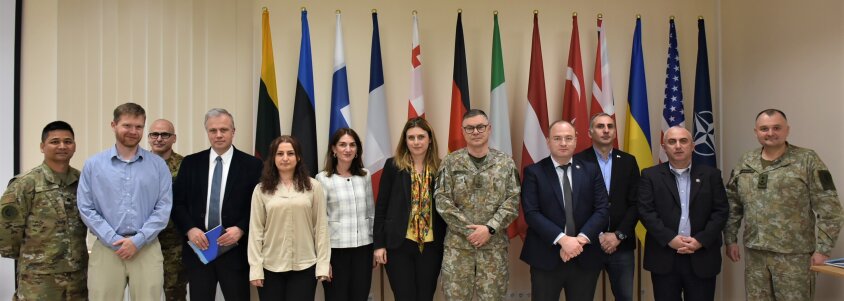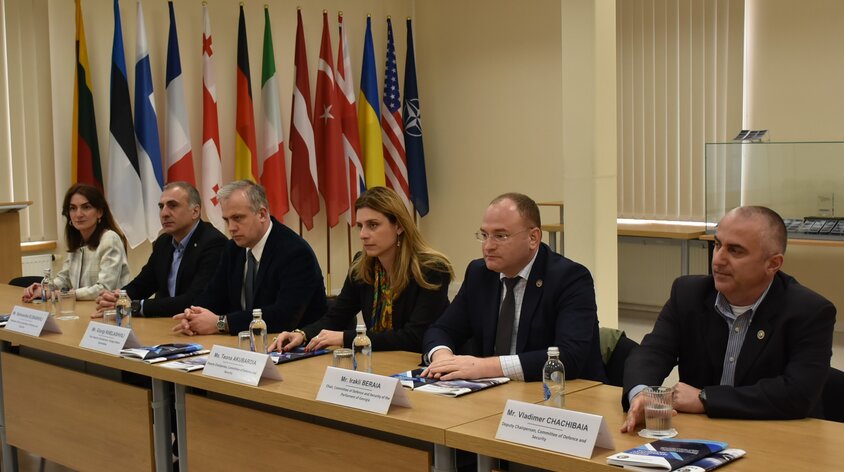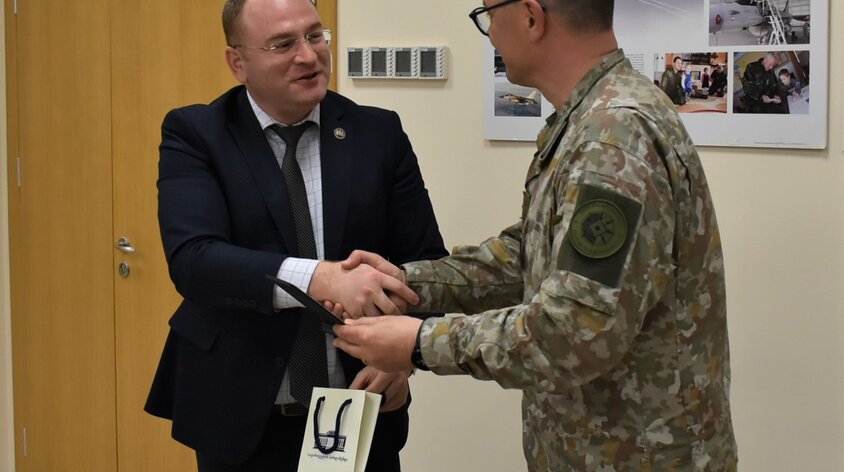The NATO Energy Security Centre of Excellence was visited by Georgian Parliament Defence and Security Committee delegation
On 1st of June the Georgian Parliament Defence and Security Committee delegation, headed by Mr. Irakli Beraia, visited the NATO Energy Security Centre of Excellence (NATO ENSEC COE). The delegation was welcomed by the Centre’s director Colonel Darius Užkuraitis.
At the start of the meeting COL Darius Užkuraitis introduced the NATO ENSEC COE structure, mission and priorities.
During the meeting LTC Videt Norng, the Head of Education, Training and Exercise Division, focused on upcoming exercise „CORE 22 - Georgia” which will start on the 27th of June and continue until the 1st of July. During these exercise will be tested Georgia’s Critical Energy Infrastructure resilience to the hybrid threats.
The Head of Doctrine and Concept Development Division, LTC Massimo Dacchille presented the concept on the “Operational Energy” and Energy Management Handbook.
Subject Matter Expert Ana Gogoreliani from Georgia, introduced the project about preliminary technical analysis of the establishment of Information Security Operations Centers (SOC) in companies with critical energy infrastructure.
LTC Darius Aukščionis, Head of Strategic Analysis Division, presented ongoing studies and Innovative Energy Solutions for Military Applications exhibition which will be organized in Poland in 2023.
The Head of Research and Lessons Learned Division, Wsewolod Rusow reviewed synthetic fuel analysis.
At the end of the meeting it was discussed about the Energy Security issues.
The NATO ENSEC COE was established on 10th of July and accredited on 12th of October, 2012. Currently it operates as a widely recognized international military organization with the aim of providing qualified and appropriate experts advices on questions related to operational energy security.
The mission of the NATO ENSEC COE is to assist Strategic Commands, other NATO bodies, nations, partners, and other civil and military entities by supporting NATO’s capability development process, mission effectiveness, and interoperability in the near, mid and long terms by providing comprehensive and timely subject matter expertise on all aspects of energy security. The mission includes cost effective solutions to support military requirements, energy efficiency in the operational field, and interaction with academia and industry.



